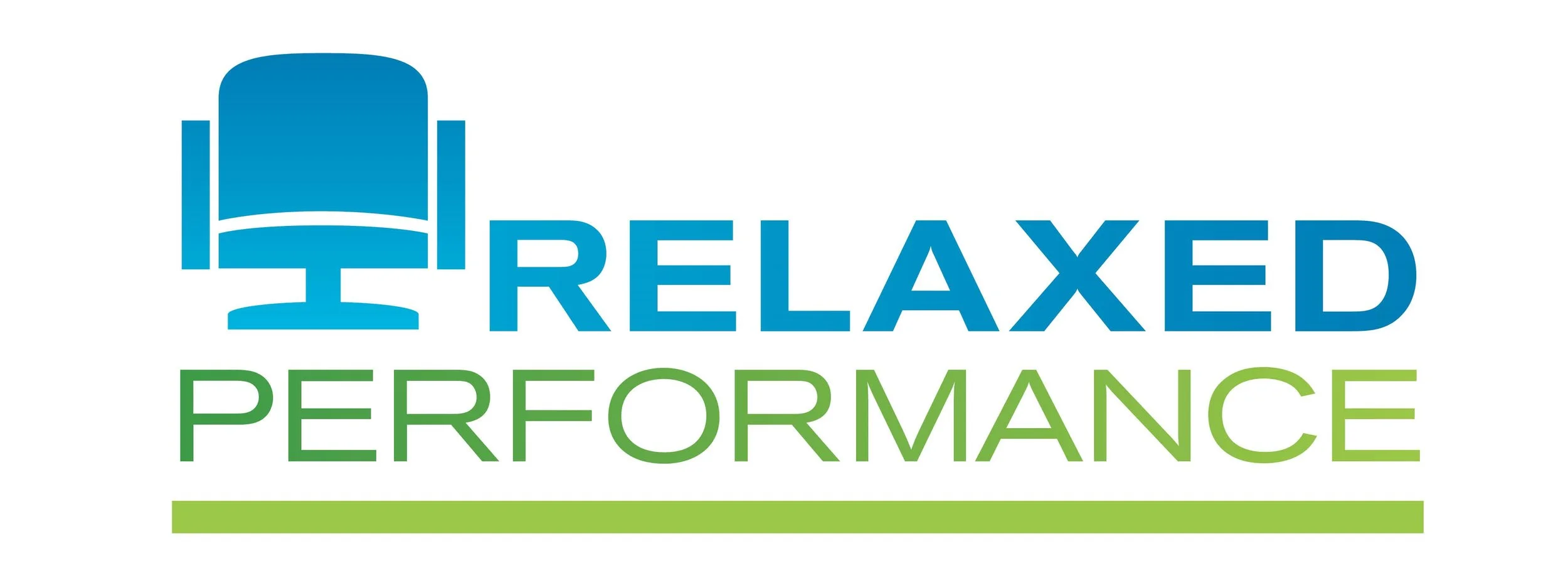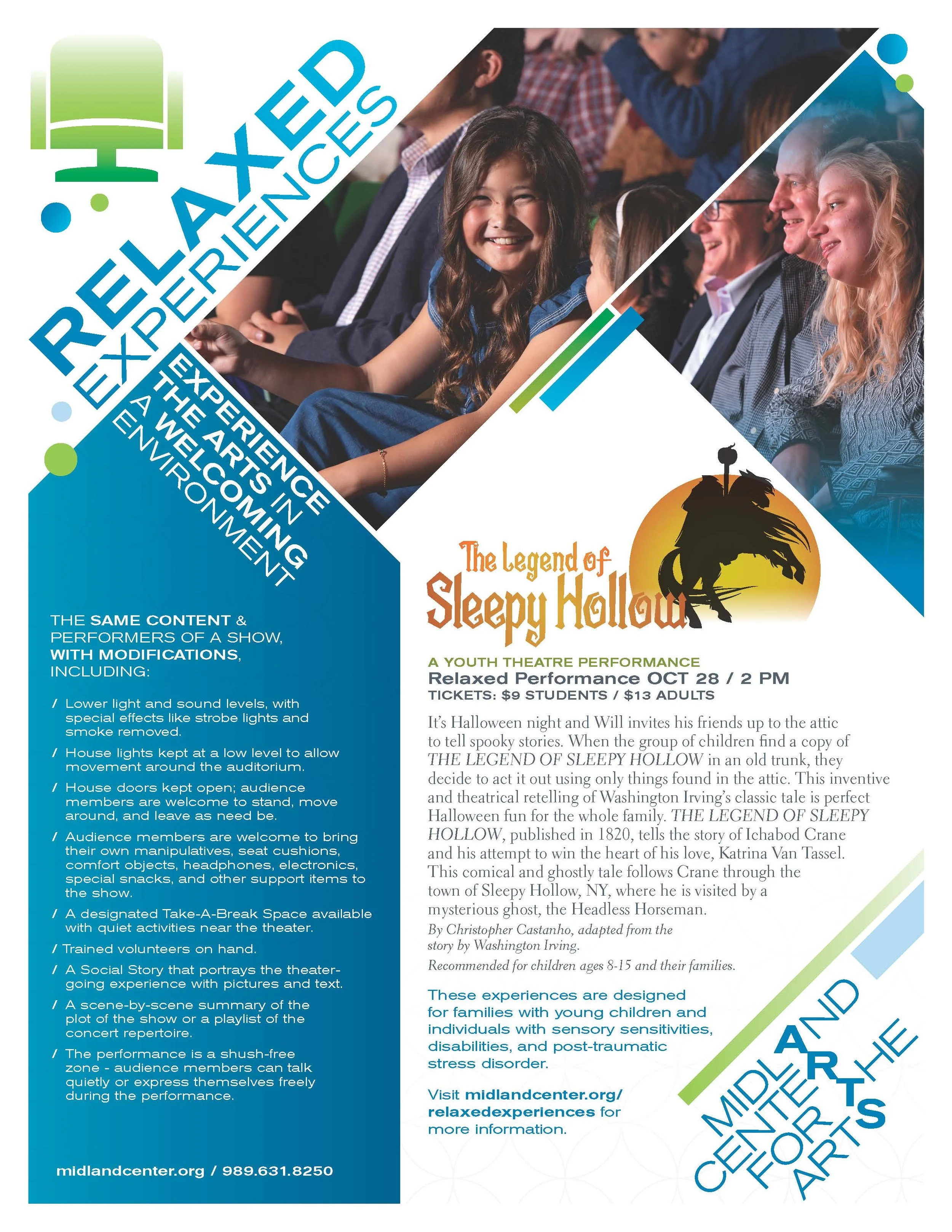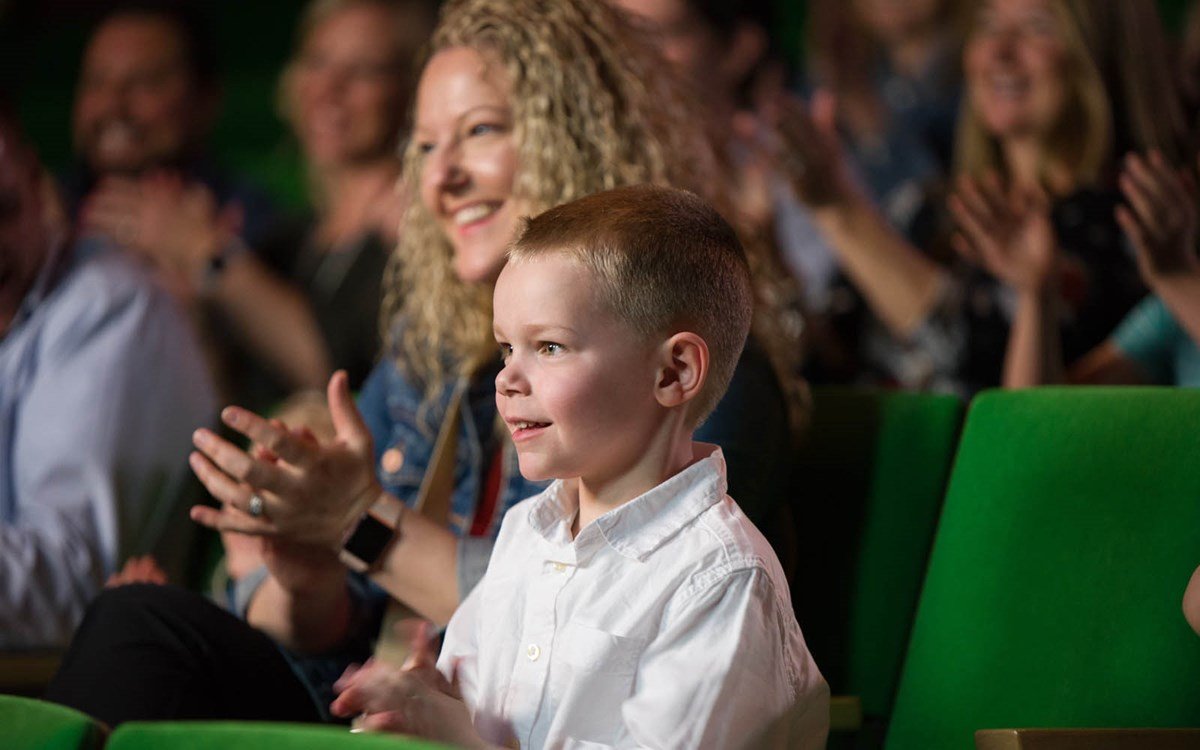Inclusivity in the Arts: Exploring Relaxed Performances at Midland Center for the Arts
Katie Miller, Senior Manager of Community & Group Engagement at Midland Center for the Arts
I had the recent pleasure of talking to Katie Miller, Senior Manager of Community & Group Engagement at Midland Center for the Arts, about their upcoming relaxed performances. In this conversation we explored how these theater performances are more inclusive, how they came to be, and why this is important for our community. Let’s dive right in!
Love,
Max
Max: Katie, thanks so much for chatting with me today. Can you please explain what relaxed performances are and why they are important for the community? How do they differ from regular performances at the Midland Center for the Arts?
Katie: A relaxed performance is a concert, theater show, or other live experience designed to make live performance more accessible to those who find more traditional settings challenging due to sensory sensitivities, cognitive differences, physical disabilities, or any worry that keeps one from entering a theater. They differ from typical performances in that we modify the performance environment and some small elements of the show, like lowering sound levels – but the content of each performance is exactly the same as other performances, so patrons can enjoy a story or concert in a way that works for them.
These performances are important because they create a space where individuals, friends, and families can attend a live performance together and not be concerned about being uncomfortable or not enjoying the experience – not only because the environment may work better for them, but because we make it very clear to audiences attending that these are shush-free and judgement-free zones.
M: What inspired the Midland Center for the Arts to offer relaxed performances, and how do these events contribute to making the arts more accessible to a broader audience?
K: The idea of sensory-friendly performing arts programming was developed about 20 years ago, and has slowly been spreading throughout the performing arts industry. I honestly only learned about it in detail in 2017 from our colleagues at the Wharton Center in East Lansing and immediately wanted to learn more, and when I came to the Midland Center in 2018 felt it was imperative that we offer these opportunities to help ensure that we are serving as many people in our community as possible.
We offered our first sensory-friendly performance in 2019, when I worked with Center Stage Theater to offer a modified performance of Joseph and the Amazing Technicolor Dreamcoat – and it was a huge hit. While this programming was initially designed for individuals with autism and sensory sensitivities, the individuals who attended that first show made me realize that this model was useful for so many more members of our community. For instance, a woman who uses an oxygen tank came, and her family shared after that she had not attended a theater show for many years, as she feared that the noise the tank made would bother others and she would be asked to leave. That’s simply unacceptable, as everyone should have access and feel welcome in our spaces – but we in the industry, and honestly in conjunction with our audiences, have cultivated specific expectations around behavior or etiquette or what the theater-going experience “should be” – quiet, still, and without distraction. And that simply excludes MANY people from the joy of live performance.
Thus I changed the name of our programming to relaxed performances and broadened our audience definition to anyone who wants or needs a modified performance environment – including those with sensory sensitivities, veterans or others with PTSD who perhaps can’t do flashing lights or loud noises, to seniors with mobility, hearing, or vision challenges, to families with young children who want to bring them to a performance but fear they won’t sit still or would need to leave to use the restroom. While the physical modifications are important, the removal of stigma or fear of the “side eye” from other patrons, ushers, or even staff is perhaps even more so. These shows are just one of the pieces of the puzzle when it comes to accessibility, but an important one.
M: It's fantastic that you're making efforts to create a more inclusive and welcoming environment. Could you share some of the specific accommodations and adjustments that will be in place during these relaxed performances to ensure everyone's comfort and enjoyment?
K: Absolutely. First, all the performances all have the same content, but we may modify sound levels or lighting effects during the course of the show. The auditorium lights are also on at a low level and the doors left open for those who may need to navigate the space or leave and re-enter. Patrons are welcome to bring comfort items, sound-dampening headphones, tablets, or other devices that help them to get the most out of their experience. We also offer “take-a-break spaces” in our lobbies with quiet activities and comfort items that patrons can use if they need to step out.
We also offer downloadable Q&As and social stories for each of our relaxed performances on our website. Social stories are documents with pictures that takes patrons step-by-step through the experience of coming to a show to help them prepare for their visit. I am also always happy to give a tour of the Center before a show or answer any questions a patron might have about the experience ahead of time.
M: Many individuals with sensory sensitivities or different needs may hesitate to attend traditional events. How can potential attendees and families benefit from attending a relaxed performance, and what can they expect from their experience?
Individuals and families that attend a relaxed performance can expect to simply have a good time! They should expect friendly staff and ushers, and great performances from our youth theater artists and professional symphony orchestra musicians, depending on which show they attend.
It is our hope that those that attend find the experience comfortable and useful to them, and that by attending relaxed performances they learn more about the Center, our programming, and how to navigate our facilities. Community members are always welcome to attend relaxed opportunities, but we hope that as they grow in familiarity and comfort with us, that they will consider attending other shows, taking art or theater classes, or visiting our museum. It is also our hope that by consistently offering these performances, other patrons learn about and consider the needs of their neighbors and assist us in creating a welcoming atmosphere at all of our Center events.
M: Finally, Katie, when are these relaxed performances taking place, and what shows or productions can the public look forward to? And how can people find more information or purchase tickets to attend these inclusive events at the Midland Center for the Arts?
K: I am excited to share that we are offering three relaxed performances for the first time ever this season!
Youth Theater: The Legend of Sleepy Hollow - Saturday October 28, 2023 at 2 pm
Midland Symphony Orchestra’s Holiday Pops Concert - Saturday December 9, 2023 at 3 pm
Youth Theater: Disney’s Frozen Jr - Saturday February 24, 2024 at 2 pm
All information and tickets can be found at https://www.midlandcenter.org/visit/accessibility/relaxed-experience
The Relaxed Holiday Pops concert with the Midland Symphony Orchestra has become a holiday tradition here, and we are excited that our youth theater students continue to be invested in serving their community in this way. I hope to see you all at the Center soon!
M: Thank you so much for taking the time to explain this programming in greater depth and I can’t wait to help spread the word to the community about these opportunities!
Do you have a Midland County story you would like to tell that aligns with our vision?






